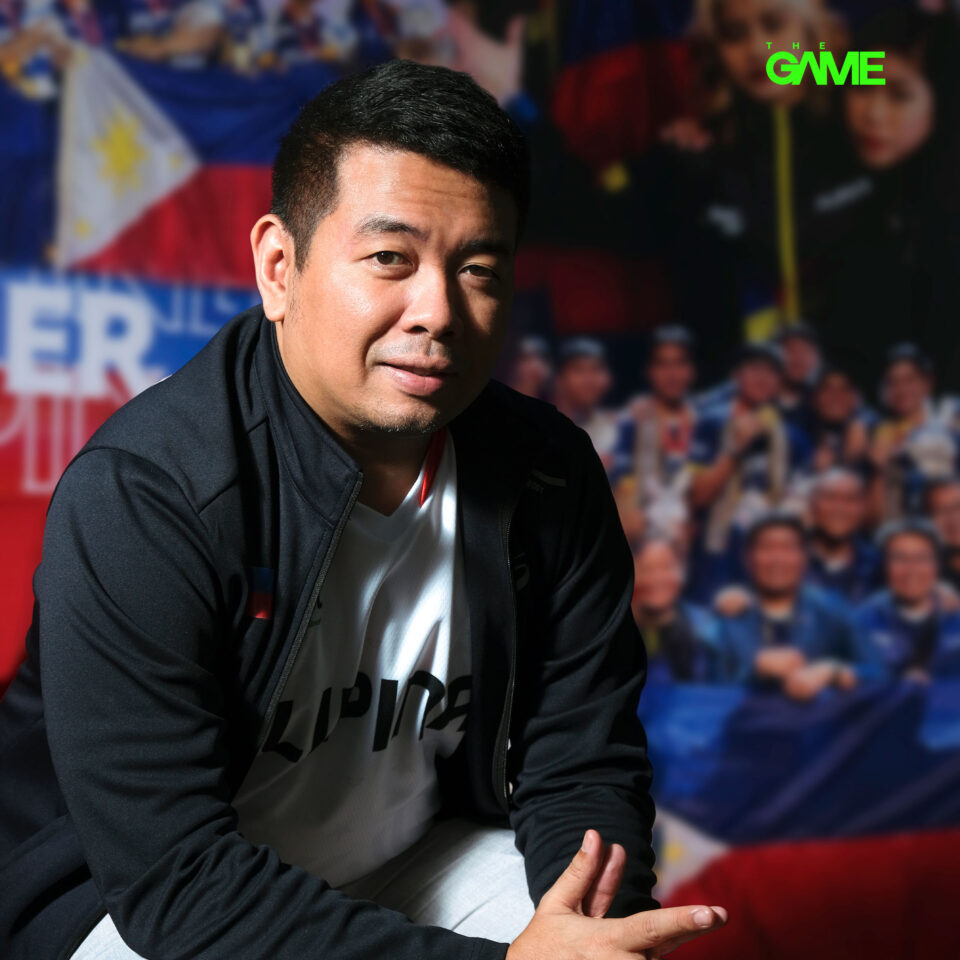From the cyber cafes in Taft to the Palace of Culture in Iași, Romania, Philippine esports has made great strides across the world thanks to Marlon Marcelo.
Philippine esports is having itself one hell of a year. Earlier in 2023, the Philippine esports team, more commonly referred to as SIBOL, won six medals in the 32nd Southeast Asia Games. Sometime later, SIBOL would rank first in the overall standings in the 15th World Esports Championships. As of this article’s writing, SIBOL is currently participating in the 19th Asian Games, a landmark event for esports as it’ll be the first time it will be featured as a medal event recognized by the International Olympic Committee. The Philippines is reaching greater heights in esports, and much of its growth is thanks to the leadership of Marlon “Boss Lon” Marcelo.
Marlon Marcelo is the Executive Director of The Philippine Esports Organization (PeSO) — a small but impactful group that has bolstered the rise in esports in the country, perfectly illustrated by their new office located in Mandaluyong. It is small, but as soon as you walk in, you can immediately see the faces of our triumphant national esports athletes lining the walls, raising their medals and trophies high. These are markers of the vibrant, yet still relatively young history of Filipino esports.
PeSO is not dissimilar from other sports organizations in the Philippines, such as the Samahang Basketbol ng Pilipinas. Given his role, Marlon’s duties involve making sure that the organization is well supported and achieving its goals. Those include sending our best esports athletes to international federation events and making sure that the Philippines remains competitive in the global esports arena.
But it takes a good captain to steer a ship and there’s really no one better qualified to be at the helm than Boss Lon.
The Early Days
Over a decade ago, no one knew what esports was or would have believed you if you said that it was a thing. “Playing games for money” sounds like a foreign concept but there were people who believed in the potential of esports, especially here in the Philippines. One of them was the Mineski Global Group, owners of the Mineski Infinity line of cybercafes.
It’s here where Marlon Marcelo first cut his teeth in the world of esports, first as a known community member and then becoming the director of events who helped organize and set up their local tournaments.
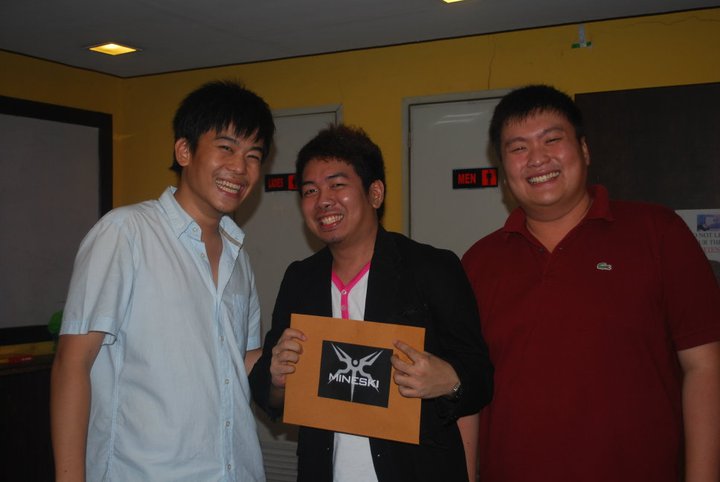
“We actually realized that there was a potential in making esports big in the Philippines, just because of the cyber cafe business,” said Marlon while reflecting on his years with Mineski. “Normally the strategy back then to gain more customers and make your cyber cafe more known was to have big tournaments. At the time we had a PHP 20,000 prize pool so everyone would actually go there. ‘Uy Dota tayo, dito ang bakbakan!’”
According to him, at their peak, there were at least 110 Mineski cyber cafes across the Philippines with branches also operating in Malaysia, Indonesia, and Thailand. It’s here where they got a glimpse of what esports could be. However, that didn’t change the fact that they were treading uncharted waters with no one to rely on. “Esports was not a thing, right? Your parents wouldn’t actually approve of you playing esports for a living,” said Marlon with a smirk, although it was clear that he remembers the uncertainty surrounding those days. “It’s like ‘You’re in esports? Nako, baka hindi maayos schooling niyan. Baka sablay yan.’”
Yet Mineski pushed on and Marlon would laud their then CEO Ronald Robins for never wavering on his vision of Philippine esports. “He knows what it feels to have nothing. No support from our government, no support from our parents and our friends… we were actually competing against the odds.” And as they struggled, carrying the flag of Philippine esports, their perseverance would eventually pay off.
In Cologne, Germany in 2011, video game developers Valve revealed Dota 2 to the world and its very first tournament, The International, on the same day. It had a total prize pool of USD 1.6 million, the biggest of its time, and the Philippines’ very own Mineski was one of the first few teams able to take a crack at it.
A video game tournament holding a USD 1 million tournament was a paradigm shift in the industry. People were now talking about esports instead of dismissing it outright. While it still wasn’t smooth sailing from this point, this event gave Mineski and Marlon the motivation they needed to keep pushing forward.
The voice of Philippine Dota 2
While Marlon worked with Mineski behind the scenes to ensure their events ran smoothly, he was also more well-known within the community for his voice and energetic shoutcasting. Primarily a Dota caster, he was calling plays and hyping up crowds even before Dota 2 came out. “Shoutcasting was a passion project, to be honest,” said Marlon. “We were actually thinking, ‘How are we going to entertain the fans that were playing inside the cyber cafe in a tournament?’”
“At that time, Mineski Infinity Taft was considered one of the best branches in the Philippines because they were futuristic. You had good chairs, good monitors, fast internet, malamig. Then there was an area there that was free that we used to project people’s games… then me and my previous partner, Tryke Gutierrez, we talked. ‘We actually play Dota, why don’t we actually try to cast some games?’”
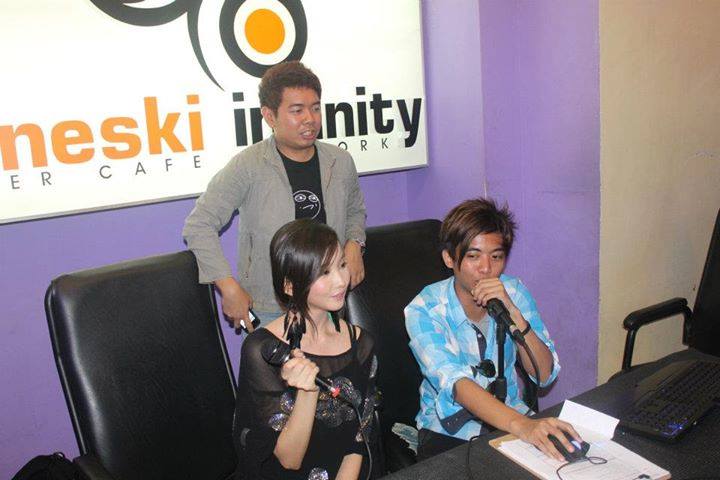
Just like everything else back then, Marlon and Tryke’s casting was bare bones but full of passion. “We were just giving back to the community.”
They would use megaphones to be heard over the crowd and would get paid with slices of pizza for their hard work. They were the X factor — the main attraction to their events. “Because, of course, it’s really entertaining. And if you go to the playoffs, right, you get shoutcasted by Lon and Tryke.”
Eventually, Tryke would leave Mineski and Marlon would be paired with Aldrin “Dunoo” Pangan, and so the legendary Lon and Dunoo shoutcasting duo would be born. The two were beloved by the Filipino Dota 2 community for their wacky yet endearing casting. “When you hear us cast it’s like ‘oh, eto na si Kuku! Sobrang lakas niya, sinapak niya!’ ganon.” Marlon said that this shotgun style of casting was intentional as “we wanted to reach everyone, even if they didn’t know Dota… also, we are really, really honest with our emotions, especially if we are casting a Filipino team!”
As live streaming started taking off, so too did big esports events. This gave Lon and Dunoo more opportunities to lend their voices in support to the Filipino players and teams who would go out and compete overseas in the early years of modern esports.
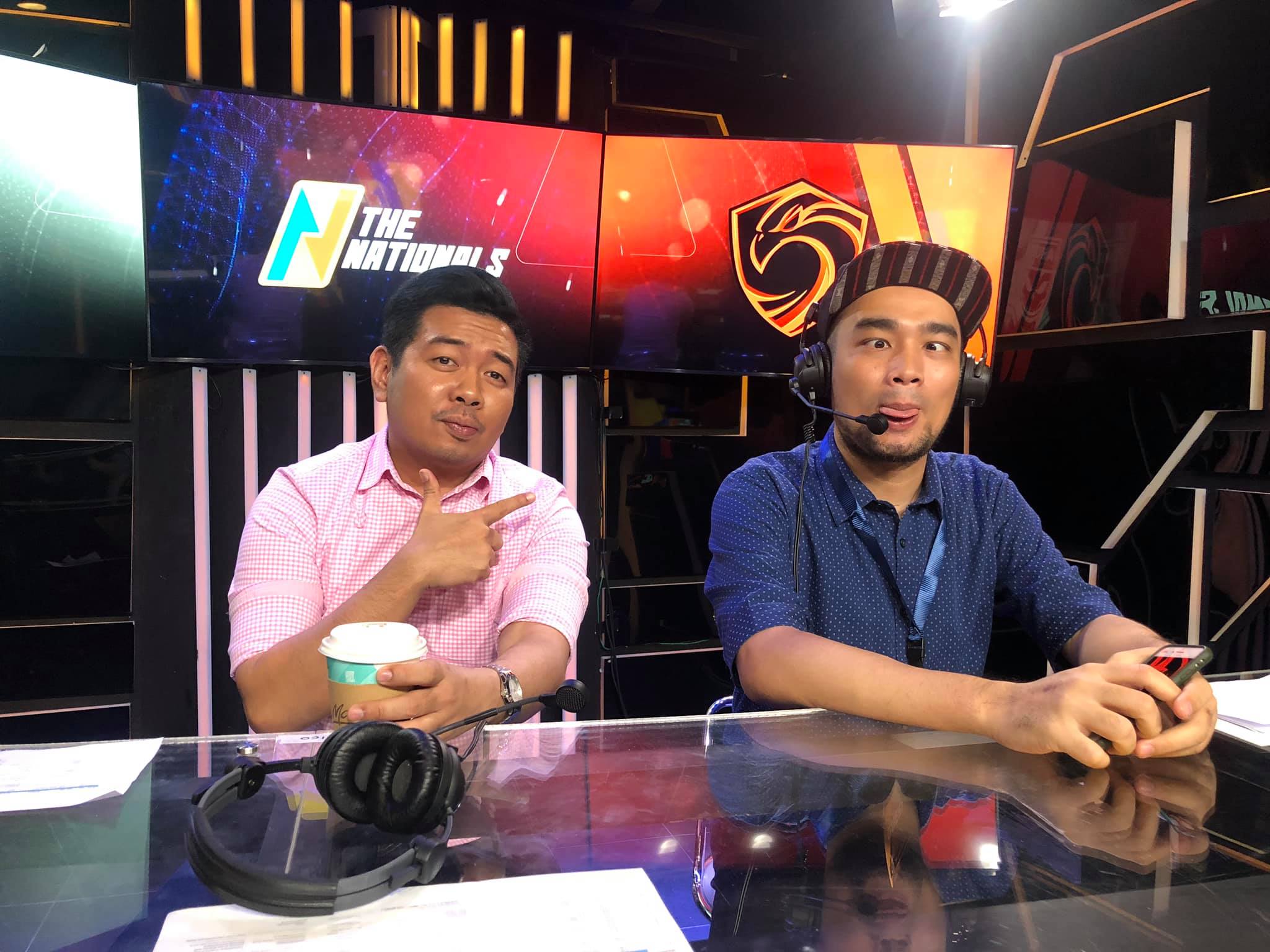
The duo would then make history at ESL One Katowice, 2018. As the final moments of Fnatic vs. Team Secret’s do-or-die series was coming to a close, the two would utter a phrase that would immortalize them in esports history: “Lakad Matatag!”
“To be honest, we didn’t think that it would be that big… But at that level, it was also Valve that took a risk and put us into the most expensive Battle Pass line.” A Battle Pass is a purchasable, in-game tournament pass that contains quests, achievements, and rewards for Dota 2. Players can unlock its contents by playing games and the iconic Lon and Dunoo line was locked away in the furthest level of the pass, meaning players had to work hard to unlock it.
There was a period of time when you couldn’t jump into a game of Dota 2 without hearing Lon and Dunoo’s voices being spammed through your speakers. It wasn’t limited to just Pinoy gamers as well. Even Gabe Newell, the president of Valve, couldn’t help but join in. “They [Valve] took a risk and they were really, really happy,” said Marlon, “it became like a battle cry, not only for the Filipinos but for gamers all over the world.”
The Mission of SIBOL and PeSO
It’s only appropriate then that Lakad Matatag became the official battle cry for SIBOL. It perfectly encapsulates Marlon Marcelo and PeSO’s vision for the Philippines’ national esports team. Right from the start, they wanted SIBOL to not only be taken seriously but to also change the image of the Pinoy gamer — to elevate it.
This involves a rigorous selection process where hopeful esports athletes must prove they’re good enough to represent the Philippines. As Marlon puts it, “There are no sacred cows or admin-preferred teams, you must be able to climb the trials.” For this, he complimented SIBOL’s general manager Leo “Jab” Escutin, and his team for ensuring that our best esports athletes are able to play on the international stage.
More often than not, these athletes also have other responsibilities they need to balance, usually with a team or an esports league. Yet they’re still willing to join SIBOL — excited even. “There’s a lot of negotiations going in. They have their own contracts as well… but of course, these guys want to bring glory and honor to the country. They still want to raise the flag of the Philippines,” says Marlon with a smile. “Sa esports, I’m really lucky that they’re willing to serve. The best of the best. Para sa bayan ‘yan.”
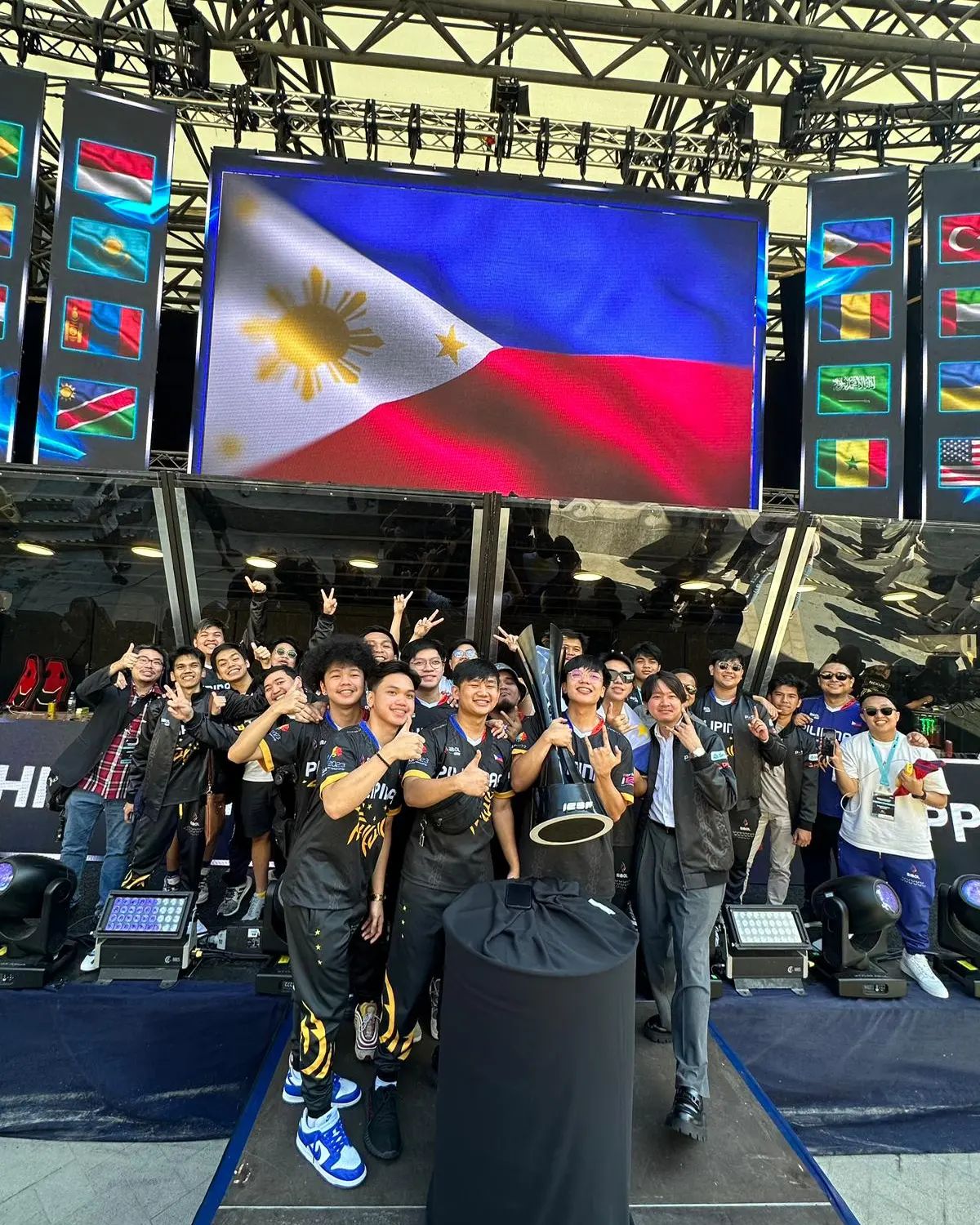
The image of representing the Philippines on the international stage is also key to PeSO’s strategy of changing people’s perception of esports and gamers. “Even parents now are actually supportive of their kids. When we do briefings and contract signings in SIBOL, they come in and say ‘My God, my kid is a national athlete!’”
Through the strict requirements and negotiations undertaken by SIBOL, PeSO has shown that the Filipino gamer and esports athlete is something to be proud of. From the tryouts to requiring SIBOL athletes to use their given names instead of their gamer names, PeSO wants to shine a light to the excellence of Pinoy gamers.
“Esports is a blessing to the Filipinos,” says Marlon with utmost certainty and confidence. “Why? Because it has no boundaries. Payat ka, matangkad ka, mataba ka — there are no limitations for the Filipino physique.”
Esports is an arena where the Filipino can excel, and we’ve proven that time and time again.
The Future of Philippine Esports
SIBOL has been on a roll this year but PeSO is banking on more than just international victories to carry Philippine esports forward. “The glory — it’s really sexy when you win, right?” says Marlon with a playful smile, “It’s an issue. When you win everybody’s your friend but if you lose, yari ka sa Pinoy!” To that end, PeSO has started laying the foundations that would help grow the scene.
Marlon highlights two areas that can help bring more awareness to esports: the government and the academe. PeSO already has an understandably close partnership with the government and their support has been invaluable to SIBOL. They already have other projects in motion, such as including esports the Palarong Pambansa, an annual multi-sport event for student-athletes, as a demo event. “Can you imagine? There are 17 regions all over the Philippines. It’s like our mini Olympics every year,” says Marlon excitedly.
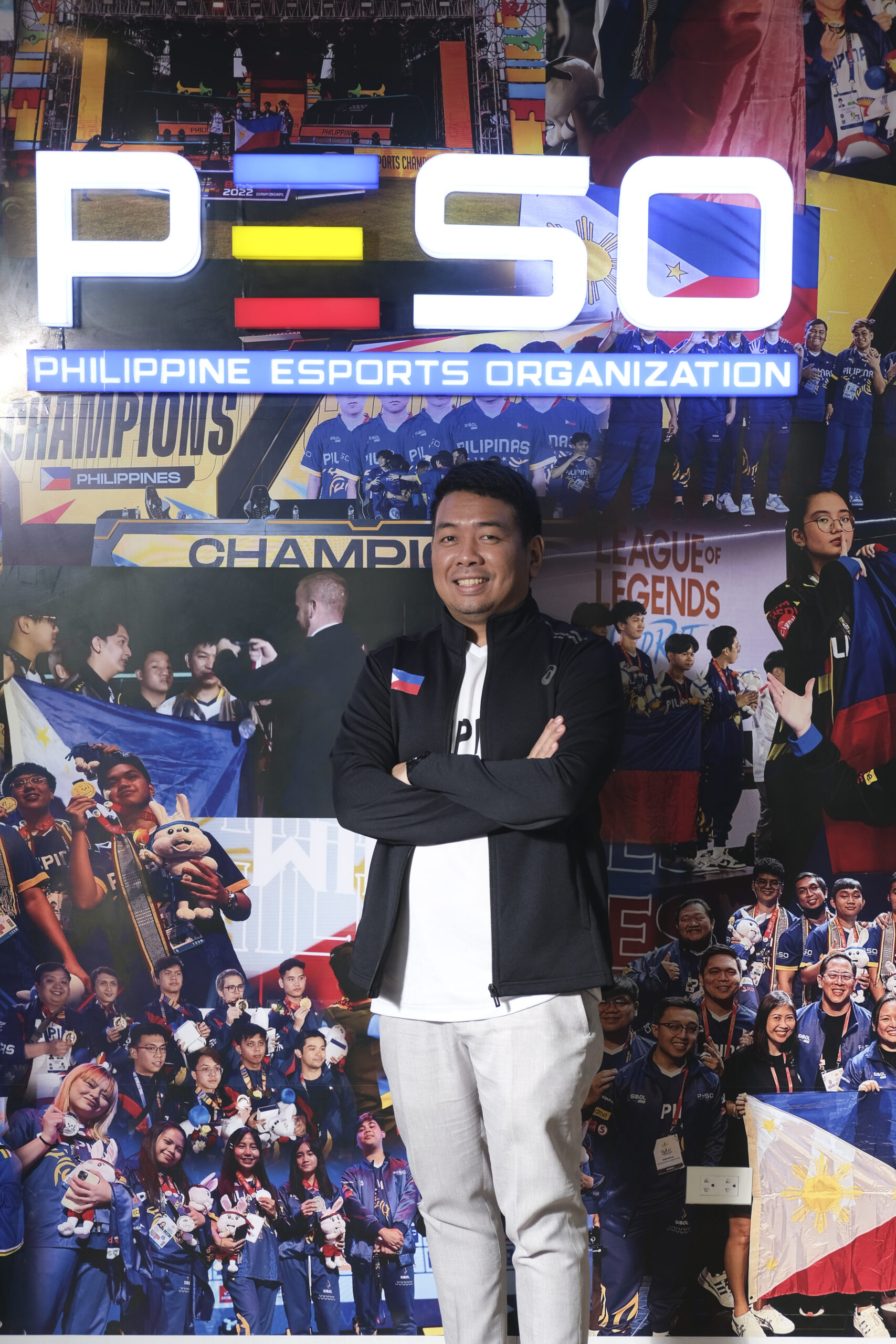
As far as the academe goes, Marlon knows that esports already has a presence among schools. “Esports is becoming the sport of the youth,” he says matter-of-factly. It’s a growing market segment that loves to play games and watch esports, primed with opportunities to collaborate and educate about the world of esports. PeSO has begun talking with major schools and universities because some of them already have prominent esports clubs.
On the economic end, PeSO wants to support the ‘back end talent’ as Marlon calls them. Beyond the athletes, there are also organizers, casters, technicians, and the essential inner workings that make an esports event flow. “If we can actually do good events in the country, we can actually host World Championships or bring back those big events… It benefits the caster, the supplier, the event organizers, just because there is business in the Philippines.”
Once all these initiatives come together, the end goal is to get enough support to open an esports facility here in the Philippines. “That is one of my dream projects of PeSO,” says Marlon as he points to Katowice in Poland. They have already converted their Spodek arena to be esports ready for the popular first-person shooter Counter Strike, making them the Counter Strike capital of the world. “If we want to become the Southeast Asia esports capital, wherein we have different esports festivals or esports events for the year, we must have an esports facility that can actually host all this festivity.”
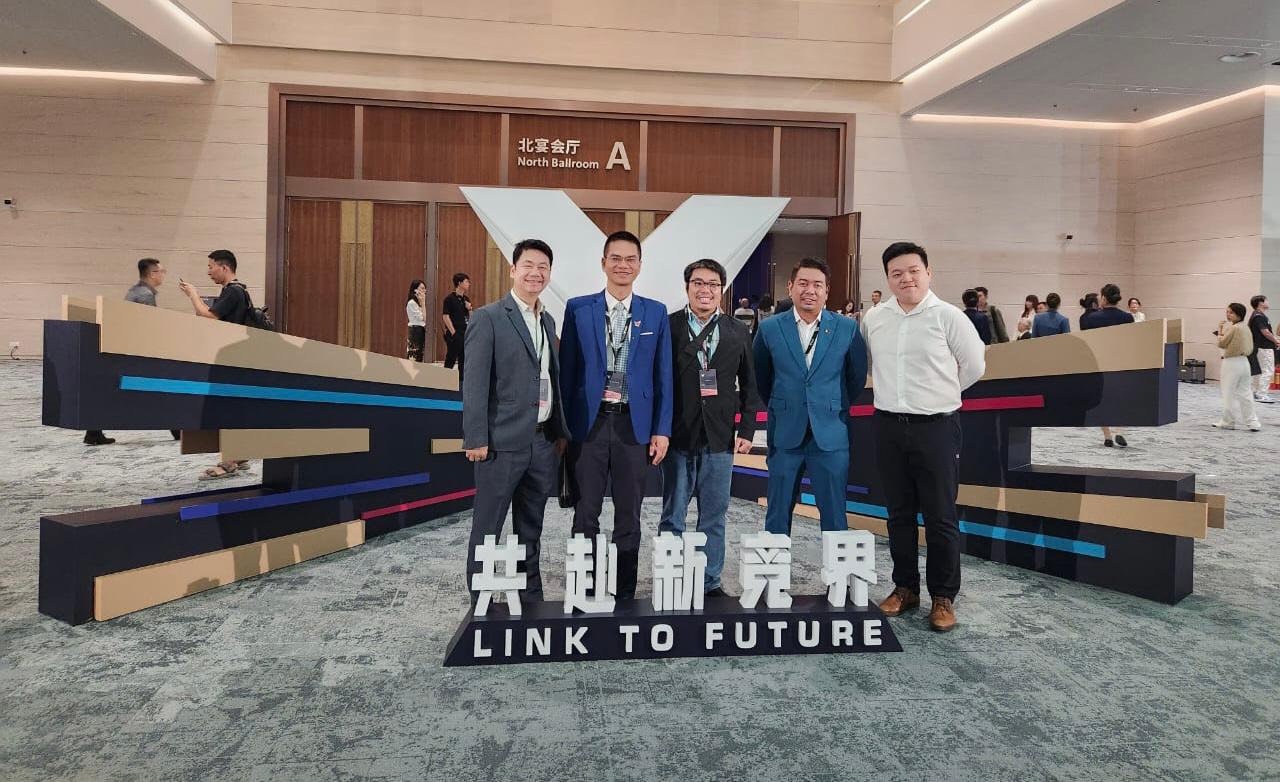
Of course, all of these initiatives would ultimately fall apart without proper guidance and that’s really where PeSO steps in. The members of PeSO are comprised of local esports organizations who not only have a stake in Philippine esports but have been there since the beginning. Marlon’s old partner, Tryke Gutierrez, would eventually establish Tier One Entertainment, one of the biggest esports and gaming organizations in Southeast Asia, and a member of PeSO. Mineski and its Chairman Ronald Robins are part of PeSO as well. And leading the charge is Marlon with his wealth of experience after more than a decade of running through the esports trenches.
Marlon Marcelo and the members of PeSO offer something the Philippine esports scene didn’t have years ago – experience, insight, and role models. “The experts are already in positions where they can actually say nagawa na namin yan, eto talaga yung tama,” he says.
With this kind of guidance, the Philippine esports scene is surely heading in the right direction. They just need to remember to walk with confidence.
Text RAMON DOMINGO
Photography ED SIMON
Art Direction KARLOTA TUAZON
Sittings Editor JAMES CRUZ
Shoot Coordination TONI MENDOZA
Shot on Location PeSO OFFICE, THE LAUNCHPAD, MANDALUYONG
Related Stories:
SIBOL Philippines Finishes on Top as Mobile Legends WEC 2023 Champions
Iñigo Anton: On Taking the Philippine Flag to the First Olympic Esports Week
A Look Back on How ECHO Became the M4 World Champions
